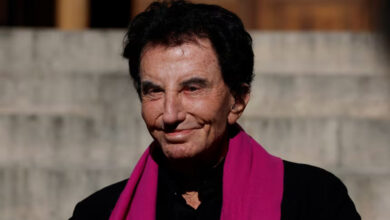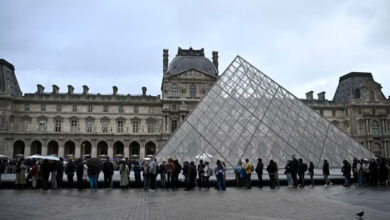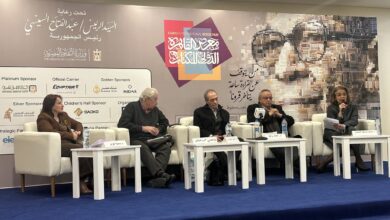On 6 February, as Tahrir Square resonated with freedom chants and democracy demands, the French-Lebanese poet and novelist Andree Chedid passed away in Paris at the age of 90.
A prolific writer who quickly became a monument of French literature, she was born in Cairo in 1920 to a Lebanese Christian family that had immigrated to Egypt in 1860. She spent her childhood and adolescence in a cosmopolitan Cairo, at a time when Western and Eastern culture merged with each other in the city.
Raised with French at home, fluent in Egyptian dialect and educated in English at the American University in Cairo, she embodied the openness of the intellectual elite of that period. Although she wrote her first collection of poems in English “On the Trails of My Fancy” (1943), she pursued the rest of her literary career in French.
“This language is my flesh," she explained, "and I feel nothing, feeling or gesture, which does not pass through it.”
Chedid moved to Paris with her husband Louis Selim in 1946 and lived in the vicinity of the Luxembourg Gardens. Chedid wrote poems, and was encouraged by the French poet, essayist and philosopher Rene Char to publish them. Cherishing a certain motto of Char's–“the unfulfilled buzzes with the essential”–she became a poet of fleeting moments, of the little things in life.
Uprooting is also a motif that appears throughout her literary work, a feeling whose subtleties she specifically explored in her poetry collection “Double Pays” (Double Country). In 1994, when questioned by Amin Maalouf on her vision of dual culture she declared: "I do not feel exiled, or torn apart. I love Paris; it is a place to find one’s freedom. I do not have the feeling that I am cutting myself from my roots, I carry them with me, it is an inner East that is not incompatible with what I live.”
Her career lasted 60 years, and she left behind about 20 poetry collections, the same amount of novels, some plays and a few children books. Her novel “The Sixth Day”, published in 1960, was adapted for the cinema by Egyptian director Youssef Chahine in 1986, starring the pop star Dalida.
Among many awards she received during her long literary career, she was awarded the Goncourt prize in 1979 for her short story “Time and the Body.”
Chedid founded a clan of “words virtuosi”: her son Louis Chedid, born in Ismailia in 1948, became a relatively famous singer in France in the late 70s and 80s. His simple and witty songs characterized the French pop music of the time, especially the track “Anna, my sister Anna” (1985), which denounced the rise of the extreme right in France. Louis Chedid’s son, Mathieu Chedid, better known under the pseudonym “M”, emerged in 1997 with his first solo album “Le Bapteme” (The Baptism). An author, composer and performer, M has become the favorite troublemaker of French pop, creating a universe filled with candor and poetry. His grandmother Andree wrote many of his lyrics, most celebratedly for “Je dis aime”, a song that propelled him to the top of the charts.




